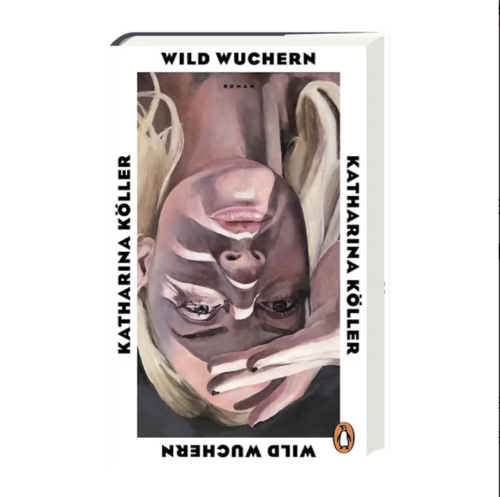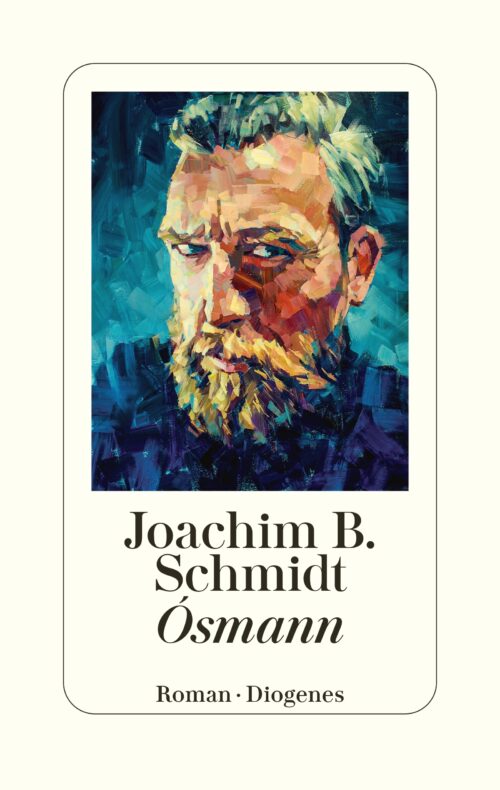
Having looked back at 2024’s crop of German books, we’re now doing a spot of sooth-saying with translator Alex Roesch.
As we step into 2025, German-language literature promises plenty to capture the imagination. A few upcoming titles have already caught my eye, each offering something refreshingly distinctive. From atmospheric stories set in untamed landscapes to expansive family sagas and finely drawn character studies, the year ahead looks set to deliver a compelling mix. Here’s a glimpse at four books on the horizon that, based on their manuscripts, are likely to generate plenty of conversation. It seems 2025 will be another quietly impressive year for German literature and well worth keeping an eye on.
Katharina Köller’s Wild Wuchern (Penguin) is as sharp and untamed as its mountain setting. Köller has a knack for conjuring tension out of thin air, and this novel is no exception.
Austrian playwright Katharina Köller’s second novel is an atmospheric and gripping story about family, isolation, and survival, set in the rugged Tyrolean mountains. It opens with Marie, a glamorous city-dweller from Vienna, fleeing her life in a state of panic. With nowhere else to turn, she heads to the remote mountain cabin of her cousin Johanna, whom she hasn’t seen since childhood. Their lives couldn’t be more different: while Marie has thrived in the elegance of urban life, Johanna has retreated from the world entirely, living alone among animals and wilderness.
As Marie attempts to adjust to Johanna’s harsh, ascetic way of life, the distance between them seems insurmountable. But the cabin soon becomes a pressure cooker, forcing both women to confront their pasts. We learn of Marie’s abusive husband and her flight from him, and of Johanna’s deep mistrust of people, shaped by wounds she has long kept hidden. When a violent storm strikes the mountain, their darkest secrets come to the surface, and they’re compelled to see each other – and themselves – in a new light.
Originally conceived as a two-person play (Windhöhe), which premiered in 2022, Wild Wuchern showcases Köller’s flair for taut dialogue and vivid, elemental storytelling. This is her second novel, following her award-winning debut Was ich im Wasser sah (What I Saw in the Water), and confirms her as a bold and exciting voice in contemporary Austrian literature.

Nelio Biedermann’s Lázár (Rowohlt) comes from a startlingly young author with a talent for the grand sweep of history. A debut this assured doesn’t come along often. I’ve always had a soft spot for multi-generational sagas, and Nelio Biedermann’s novel is a compelling new addition to the genre. Written by a 21-year-old Swiss author, this sweeping historical epic charts the fortunes of the Lázár family through the upheavals of 20th-century Europe. Beginning with Lajos von Lázár’s childhood on a fading aristocratic estate, the story spans three generations as the family navigates war, political turmoil, exile, and the painful decline of their legacy.
Set against the backdrop of two World Wars, the collapse of empires, and the rise of fascism and communism, the novel interweaves themes of loss, betrayal, forbidden love, and resilience. Biedermann’s writing is assured and evocative, capturing the emotional intricacies of his characters with remarkable sensitivity. His ability to blend personal and historical drama makes for an engaging and richly detailed narrative that brings the Lázárs’ story vividly to life.
Biedermann grew up on the shores of Lake Zurich and is currently studying German and Film Studies at the University of Zurich. Already a prize-winning author, he demonstrates a natural flair for storytelling and an impressively mature approach to his craft.
Joachim B. Schmidt’s Ósmann (Diogones) is as windswept and elemental as the Icelandic coast itself. Schmidt’s prose doesn’t just capture the landscape – it becomes part of it.
Set against the stark and mystical backdrop of Iceland, Ósmann is a mesmerising tale of one man’s extraordinary life. Schmidt, a Swiss-born author who has made Iceland his home, draws deeply on the country’s landscapes and folklore to tell the story of Jón Magnússon Ósmann, a ferryman whose life teeters between the mythical and the harsh realities of his rugged environment.

Jón’s days revolve around the water, ferrying people and goods, hunting seals, and battling the unpredictable forces of nature. A man of contradictions, he is gregarious yet devout, a poet and a drinker, generous to the poor but shaped by a life of toil. Yet as the tides turn against him, Jón is forced to confront challenges that threaten to overwhelm him, in both body and spirit. Schmidt combines human vulnerability with the timeless pull of myth, crafting a narrative that feels as vast and untamed as the Icelandic landscape itself.
Having emigrated to Iceland in 2007, Schmidt has become known for his atmospheric, immersive storytelling. With Ósmann, he delivers a deeply resonant story of struggle, resilience, and the enduring power of human connection.
Lastly, Tommie Goerz’s Im Schnee (Piper) is a masterclass in restraint, spinning a quiet tale of loss and memory that lingers long after you’ve closed the book.

Set against the snow-covered beauty of Bavaria, Im Schnee is a tender meditation on friendship, loss, and the passage of time. In a small village nestled in the mountains of Upper Franconia, Max, an 80-year-old widower, leads a solitary life in his sparse house by the railway line. With only a wood stove for warmth and no modern distractions, his days are spent in quiet reflection. As winter settles over the village, Max finds himself grieving the recent death of his lifelong friend, Schorsch. Determined to honour his memory, he sets out to do so in his own way, and through his reflections, we are drawn into a poignant exploration of companionship, community, and nostalgia.
This tender novella marks Goerz’s second foray into literary fiction after his highly regarded debut, Im Tal (2023). At just 159 pages, Im Schnee is modest in scope but brimming with atmosphere, vividly evoking the rhythms of small-village life and the quiet beauty of a Bavarian winter. While steeped in the customs and culture of its setting, its themes of human connection and change are universal. Goerz’s understated, lyrical style invites readers into an intimate, reflective world that lingers long after the story ends.
Alexandra Roesch is a bicultural, bilingual freelance translator and literary scout based in Frankfurt, Germany. An experienced translator of fiction and nonfiction, she has an MA in translation from the University of Bristol and was longlisted for the 2018 Helen & Kurt Wolff Translator’s Prize.